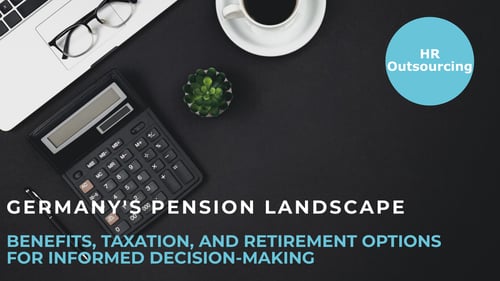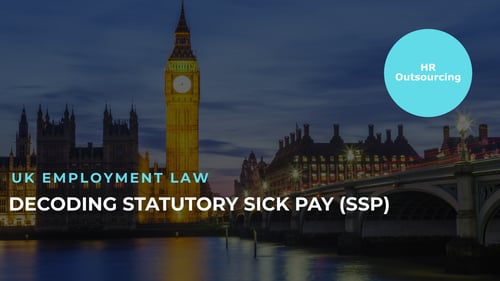Corona Virus: Implications for UK Staff, Recent Developments Explained
The Corona virus raises many questions and uncertainties. What consequences does the COVID-19 have for my staff in the United Kingdom? At EuroDev we are dealing with European HR matters every day. With our experience, we try to answer your questions as clearly as we can. Every country has its own measures regarding the Corona virus. We monitor the situation and have put all information together per country. If you employ people in the United Kingdom, the information below might help you with managing your British staff.
*The information in the blog has the purpose to help the reader with gaining more knowledge and insights on the measures taken by the government. Please keep in mind that we have outlined basic rules. There might be specific terms, rules and regulations to each measure. As a result, EuroDev cannot guarantee any reimbursements or liabilities. For more detailed information, please contact our experts.
General information
As of 15 April 2020, the UK has 98,476 confirmed cases . The UK's Chief Scientific Adviser Sir Patrick Vallance announced on 30 March that the country's lockdown measures were "making a difference".
On March 16, Prime Minister Boris Johnson revealed new measures for combating the coronavirus. British people have been told to work at home and avoid all social contact in coronavirus lockdown. This includes avoiding pubs, clubs and other venues or mass gatherings. Schools are still open. Anyone living with somebody experiencing coronavirus symptoms should isolate themselves for 14 days. Individuals with serious health conditions are told to isolate themselves for 3 months.
On April 16, ministers are expected to announce a three-week extension (until early May) to the coronavirus lockdown.

Employment
Statutory Sick Pay (SSP)
Your employees may be eligible for Statutory Sick Pay (SSP), which is 94.25 a week for up to 28 weeks.
You can offer more if you have a company sick pay scheme (you cannot offer less). Company schemes are also called ‘contractual’ or ‘occupational’ sick pay and must be included in an employment contract.
You can pay SSP to an employee who is self-isolating for more than 4 days because of coronavirus (COVID-19) from the first day.
If an employee doesn't have a company scheme, the employer has to pay the Statutory Sick Pay (SSP) as long as the employee qualifies.
Are there support packages?
Yes, the government has developed stimulus packages for businesses. Schemes can be found here.
Can I fire my staff?
Although there are special measures taken, the normal termination laws still apply.
FAQ
Managing employees who have coronavirus (COVID-19)?
Leave and Pay
What happens if an employee contracts coronavirus? Do they still get full pay or sick pay?
If an employee contracts coronavirus, this should be treated in the same way as any other sickness absence in terms of payment. If you normally only pay statutory sick pay (SSP) during sickness absence, then this is what the employee should receive subject to meeting the qualifying criteria. You may wish to apply some flexibility if the employee has contracted the virus because they were on a business trip and consider increasing payment from SSP.
In these cases your local Public Health England (PHE) health protection team will get in touch to discuss the case and advise on any action or precautions to take.
One of our workers has been confirmed as having the virus, should we close the workspace?
Official guidance says no for now; there are no restrictions or special control measures while waiting for laboratory test results and the local Public Health England (PHE) health protection team will come in to do a risk assessment. The workplace could require a deep clean in response, but they will advise on this and whether a closure is necessary. In the meantime, there is no need to close or to send other staff home.
Again, businesses should be mindful of anyone who may be more vulnerable due to age, pregnancy or a pre-existing condition and consider flexible arrangements for them during this time.
Bonus read: Remote Work in Europe
Self-isolation: managing leave and pay
What happens if an employee has been told by a medical professional to self-isolate?
If an employee needs to self-quarantine (on the advice of NHS 111 or a doctor) the Government has announced new measures that mean they are entitled to Statutory Sick Pay (SSP) from day one. This includes individuals who may be a carrier of COVID-19 but may not have symptoms, and will also apply to people caring for those in the same household who display COVID-19 symptoms and have been told to self-isolate. It is good practice for employers to treat it as sick leave and follow their usual sick pay policy (or agree for the time to be taken as holiday). You could also advise employees to work from home if possible. Treating the employee as being on paid sick leave or as working from home is advisable and justified. It makes sense, otherwise concerns about lost pay could lead to potentially infected people coming into work.

CIPD also recommends that employers that offer contractual sick pay should provide this if a member of staff is asked to self-isolate by a medical professional even if they have no symptoms. Alternative options to providing sick pay are to allow people who are asked to self-isolate to work from home wherever possible and continue to pay as normal.
Remembering that both employers and employees have general implied duties to look after all employees’ health and safety, this duty must include complying with self-isolation advice, otherwise workplace colleagues could be exposed to infection.
What happens if an employee is worried (due to caring responsibilities for example) and wants to self-isolate?
Individuals and their employer have a contract. If an employee is choosing to remove their services and has no confirmed sickness, then they are effectively withdrawing their services from their employer. The employer would be under no obligation to pay in this case. In employment contracts there are implied terms that employees should follow their employer’s reasonable instructions. If employees refuse to perform these tasks, then they are in breach of contract. It will depend on the precise circumstances but there may be grounds for following normal absence management processes.
It boils down to what is reasonable. Are the employee's actions reasonable dependent on the degree of risk? And what about that individual – are they more vulnerable due to an existing health condition, age, pregnancy, mental health condition, caring responsibility etc? Listen to their concerns and try to come to an agreement e.g. working from home. Remember that this is an exceptional event that requires both employers and employees to exercise caution and to take reasonable steps to prevent the risk and spread of the virus.
Some of my employees are parents and their child’s school has been closed, with children being sent home to self-isolate. Are they entitled to time off and will it be paid?
In this situation, if the employee can work from home in some capacity, they would be paid as usual. If an employee is unable to work from home, they could be granted unpaid emergency time off or unpaid parental leave. Strictly speaking, time off for dependants is only meant to cover a period of a few days while parents find alternative childcare arrangements, but employers should be flexible where possible in this situation.

If the decision is made to close schools for a longer period (e.g. a couple of months) then businesses will have to deal with this challenge. Many office workers could work from home in some capacity (in which case they can work and be paid as usual) but it’s unlikely that businesses would be able to offer full pay to staff for that amount of time, especially if the business is being impacted by the virus (e.g. reduced sales/visitors, etc). Employers need to start thinking now about how they might respond; could there be a middle ground between full and statutory sick pay? Could employees be encouraged to take annual leave for part of the time? The Government may also need to consider some kind of compensation pot to support businesses in this eventuality.
What are the differences between medical suspension, sickness absence and self-isolation?
In addition to these questions, you might have questions specific to your case and company. If you are looking for answers, we are happy to help. Click here to schedule a meeting.
About EuroDev
EuroDev, established in 1996 with offices in The Netherlands and France, has a single, defined purpose to help mid-sized North American companies expand their business in Europe. We have created a proven, successful business development model and since our founding, have partnered with over 300 companies to help them define and meet their European business goals. Services provided include Sales Outsourcing, HR Outsourcing and Digital Marketing.
Category
Related articles
-

Essential Guide to French Employment Regulations
22 March 2024comprehensive guide on French employment regulations for companies expanding to France, covering...
Read more -

Germany's Pension Landscape: Navigating Benefits and Taxation for Informed Decision-Making
5 February 2024Dive into the intricacies of the German pension system: benefits, calculations, retirement options,...
Read more -

Decoding Statutory Sick Pay (SSP) in the UK
29 January 2024Navigate the complexities of Statutory Sick Pay in the UK with our guide on rights, regulations,...
Read more

